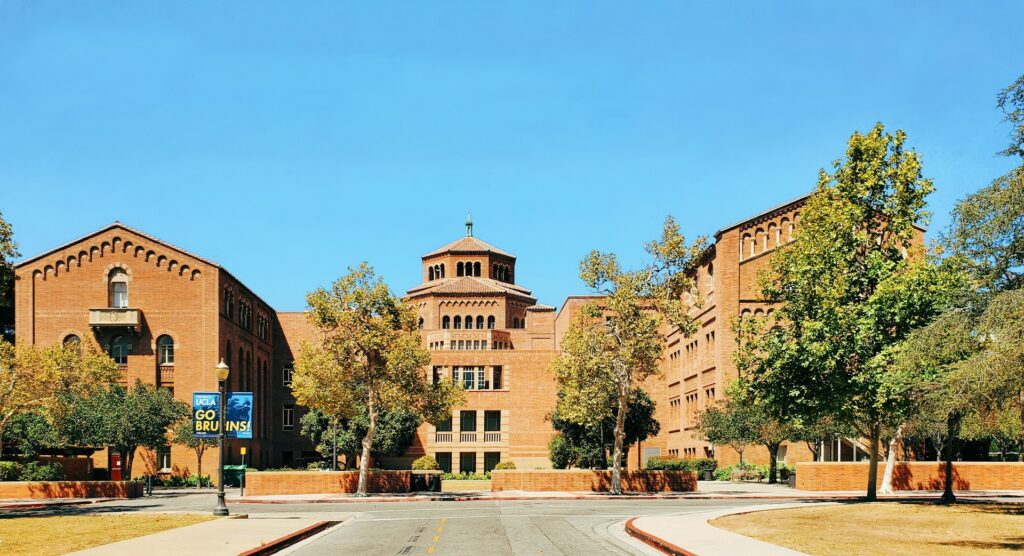
(Rightallegiance.com) – Recent incidents on American university campuses have intensified, spotlighting the escalating tensions between pro-Israel and pro-Palestinian factions. This surge of unrest culminated dramatically on Wednesday when confrontations erupted at UCLA and Columbia University.
At UCLA, the situation escalated when individuals supporting Israel clashed with pro-Palestinian demonstrators. The scene, captured in eyewitness videos and verified by Reuters, depicted assailants using sticks or poles to strike at wooden boards that served as makeshift barriers for pro-Palestinian activists. The violence prompted an urgent police response to the campus to manage the chaos.
Simultaneously, on the East Coast, a significant police operation unfolded at Columbia University. Armored with helmets and gear, New York City police detained numerous pro-Palestinian protesters who had taken over an academic building.
The intervention also extended to dismantling a nearby tent city that had become a symbol of the protest movement, mirroring actions across various U.S. campuses and internationally. These developments saw around 300 individuals arrested at both Columbia and City College of New York, with charges including trespassing and criminal mischief, according to Mayor Eric Adams.
The origins of these demonstrations trace back to the recent conflict involving a Hamas-initiated attack on southern Israel on October 7, which was followed by a retaliatory offensive by Israel into Gaza. This has sparked widespread student activism, reminiscent of the peak moments of the 2020 anti-racism protests, with students across the U.S. setting up encampments and rallying against the Israeli actions in Gaza, urging their institutions to divest from companies that support the Israeli government.
Amidst the election season fervor, these protests have also ignited political debates, with Republican lawmakers accusing some universities of ignoring or tolerating antisemitic sentiments. These allegations are particularly directed at Columbia, where calls for President Minouche Shafik’s resignation have intensified. Shafik, addressing the turmoil, acknowledged the disruptions caused by the protests but also pointed to external elements exacerbating the situation.
President Joe Biden, facing criticism from protesters for his administration’s support of Israel, is scheduled to speak on antisemitism at an upcoming Holocaust memorial event. In response to the campus incidents, White House spokesperson Karine Jean-Pierre emphasized that while Americans have the right to protest peacefully, forcibly overtaking buildings does not align with peaceful protest.
At UCLA, officials had previously declared an encampment unlawful, leading to the forceful interventions by counter-protesters, which included throwing objects and attempting to dismantle the barricades. The confrontation led to exchanges of pepper spray and physical assaults among the demonstrators.
The impact of these clashes has been profound on the academic and social environments of the involved campuses. For instance, Columbia has transitioned to remote learning for the remainder of the semester, extending even to final exams, some of which may be delayed. The university has also imposed a campus lockdown until at least two days post-graduation, underscoring the severity of the situation.
In reflecting on these tumultuous events, both university leaders and students express a mix of resolve and regret over the disturbances that have overshadowed academic pursuits and divided campus communities. As the nation watches these developments, the ongoing debates and actions reflect deeper global political tensions and the challenges of addressing complex international issues on university campuses.